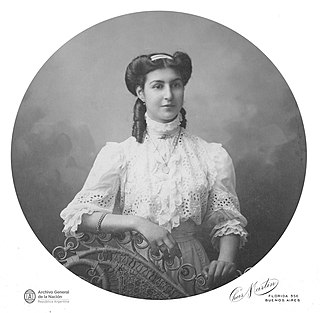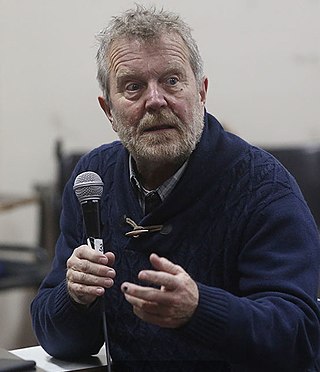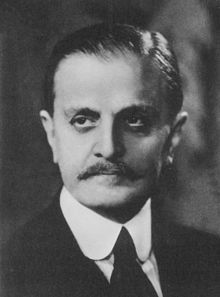
Carlos Saavedra Lamas was an Argentine academic and politician, and in 1936, the first Latin American Nobel Peace Prize recipient.

The University of Buenos Aires is a public research university in Buenos Aires, Argentina. It was established in 1821. It has educated 17 Argentine presidents, produced four of the country's five Nobel Prize laureates, and is responsible for approximately 40% of the country's research output.

Justice Inés Mónica Weinberg de Roca is an Argentine Judge of the Supreme Court of city of Buenos Aires and a Judge of the United Nations Appeals Tribunal in New York City. She was born in Buenos Aires, Argentina on December 16, 1948.

Agronomía is a barrio or district in the centre part of City of Buenos Aires, Argentina. It gets its name from the University of Buenos Aires Faculty of Agronomy based in the neighborhood. Its boundaries are Avenida San Martín, Campana, Avenida Salvador María del Carril, Avenida de los Constituyentes, and Avenida Chorroarín.
Carlos Alberto Sacheri was an Argentine thomist philosopher and scholar. He was shot and killed by ERP members on 22 December 1974 in Buenos Aires; he was targeted because of his perceived anticommunism. He was a disciple of the priest Julio Meinvielle. The most widespread of his publications was The Clandestine Church (1971), a denunciation of modernism and liberation theology from traditional positions.

Celia Tapias was the first female lawyer to practice law in the City of Buenos Aires and the second in her country.

Tomás Várnagy was an Argentine social scientist and philosopher, professor at the University of Buenos Aires (UBA).

Nora Morales de Cortiñas, better known as NoraCortiñas, is a social psychologist, activist and defender of Argentine human rights. She is a co-founder of Mothers of the Plaza de Mayo and later of "Madres de Plaza de Mayo Línea Fundadora".

The Faculty of Social Sciences, commonly and informally known as Sociales, is the social sciences faculty of the University of Buenos Aires (UBA), the largest university in Argentina. It was founded in 1988, and offers degrees on social work, sociology, labor relations, communication and political science, in addition to a number of post-graduate degrees.

The Faculty of Medical Sciences, formerly and commonly known as the Faculty of Medicine, is the medical school of the University of Buenos Aires (UBA), the largest university in Argentina. Established in 1822 as one of the UBA's earliest divisions, FMED is presently the largest medical school in Argentina, with over 24,000 enrolled students as of 2011.

The Faculty of Architecture, Design and Urbanism is a faculty of the University of Buenos Aires (UBA), the largest university in Argentina. Established in 1901 as the School of Architecture, it has since expanded to impart courses on graphic design and urbanism.

The Faculty of Veterinary Sciences, also simply known as Veterinaria, is a faculty of the University of Buenos Aires (UBA), the largest university in Argentina. It was founded as an autonomous faculty in 1972, when it was split from the Faculty of Agronomy and Veterinary Sciences, which was originally founded in 1904 as the Instituto Superior de Agronomía y Veterinaria.

The Faculty of Economic Sciences, also simply known as Económicas, is a faculty of the University of Buenos Aires (UBA), the largest university in Argentina. Established in 1913 as the Instituto de Altos Estudios Comerciales, it is now the largest faculty within UBA, with over 36,000 grad students. The Faculty of Economic Sciences has the highest rate of international postgraduate students at 30 percent, in line with its reputation as a "top business school with significant international influence."

The Faculty of Pharmacy and Biochemistry is a faculty of the University of Buenos Aires (UBA), the largest university in Argentina. It was founded as an autonomous faculty in 1957, when it was split from the Faculty of Medical Sciences.

The Faculty of Dentistry is a faculty of the University of Buenos Aires (UBA), the largest university in Argentina.

The Faculty of Psychology is a faculty of the University of Buenos Aires (UBA), the largest university in Argentina. It offers graduate degrees on psychology, music therapy and vocational rehabilitation, as well as various post-graduate degrees on diverse fields.

The Faculty of Philosophy and Letters, also known as Filo, is a faculty of the University of Buenos Aires (UBA). The faculty was founded in 1896, making it one of the oldest faculties at the university. It offers graduate degrees in multiple subjects including philosophy, literature, anthropology, history, arts, education, geography, modern and classical languages, and literary editing, as well as post-graduate degrees at the magister, doctoral, and post-doctoral level.

The Faculty of Engineering is a faculty of the University of Buenos Aires (UBA), the largest university in Argentina. It offers graduate courses on various fields of engineering, including civil engineering, computer science and engineering, mechanical engineering, electronic engineering, naval engineering, among others. It also offers graduate courses on system analysis, as well as post-graduate degrees on the magister, doctoral and post-doctoral levels.

Antonio Juan Benítez was an Argentine politician. Initially a member of the Radical Civic Union, he later became a supporter of General Juan Perón, and served in several important positions during the successive peronist governments.




































